A candidate in order to study the process of osmosis has taken 3 potato cubes and put them in 3 different beakers containing 3 different solutions. After 24 hours, in the first beaker, the potato cube increased in size, in the second beaker, the potato cube decreased in size and in the third beaker there was no change in the size of the potato cube. The following diagram shows the result of the same experiment :
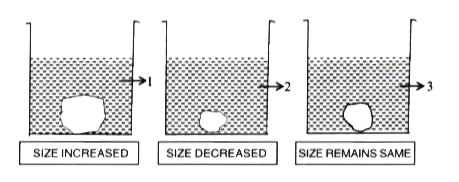
In beaker 3, the size of the potato cube remains the same. Explain the reason in brief.
Step by step video & image solution for A candidate in order to study the process of osmosis has taken 3 potato cubes and put them in 3 different beakers containing 3 different solutions. After 24 hours, in the first beaker, the potato cube increased in size, in the second beaker, the potato cube decreased in size and in the third beaker there was no change in the size of the potato cube. The following diagram shows the result of the same experiment : In beaker 3, the size of the potato cube remains the same. Explain the reason in brief. by Biology experts to help you in doubts & scoring excellent marks in Class 10 exams.
Updated on:21/07/2023Topper's Solved these Questions
Similar Questions
A candidate in order to study the process of osmosis has taken 3 potato cubes and put them in 3 different beakers containing 3 different solutions. After 24 hours, in the first beaker, the potato cube increased in size, in the second beaker, the potato cube decreased in size and in the third beaker there was no change in the size of the potato cube. The following diagram shows the result of the same experiment :
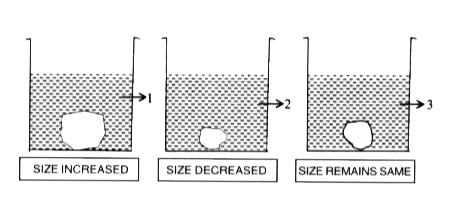
What is osmosis ?
View SolutionA candidate in order to study the process of osmosis has taken 3 potato cubes and put them in 3 different beakers containing 3 different solutions. After 24 hours, in the first beaker, the potato cube increased in size, in the second beaker, the potato cube decreased in size and in the third beaker there was no change in the size of the potato cube. The following diagram shows the result of the same experiment :
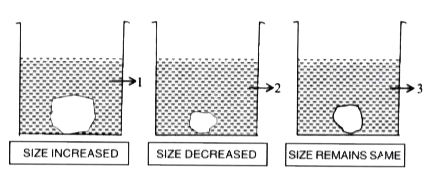
Give the technical terms of the solutions used in beakers, 1 , 2 and 3 .
View Solution
Knowledge Check
The 'eyes' of the potato tuber represent
AnodesBroots budsCflower budsDleaf buds.The 'Eyes' of the potato tuber are
AnodesBroots budsCflower budsDleaf buds.
A candidate in order to study the process of osmosis has taken 3 potato cubes and put them in 3 different beakers containing 3 different solutions. After 24 hours, in the first beaker, the potato cube increased in size, in the second beaker, the potato cube decreased in size and in the third beaker there was no change in the size of the potato cube. The following diagram shows the result of the same experiment :
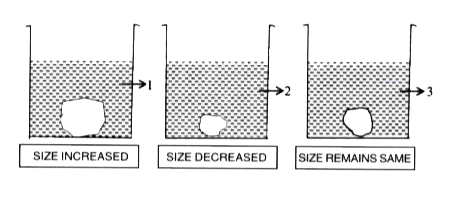
How does a cell wall and a cell membrane differ in their permeability?
View SolutionA candidate in order to study the process of osmosis has taken 3 potato cubes and put them in 3 different beakers containing 3 different solutions. After 24 hours, in the first beaker, the potato cube increased in size, in the second beaker, the potato cube decreased in size and in the third beaker there was no change in the size of the potato cube. The following diagram shows the result of the same experiment :
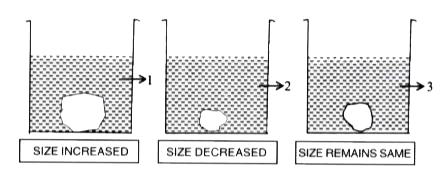
Write the specific feature of the cell sap of root hairs which helps in absorption of water.
View SolutionEyes in potato tubers are
View SolutionEye of potato is
View SolutionThe "Eyes" of the potato tuber are
View SolutionA rat feeding on potato tuber is a
View Solution
